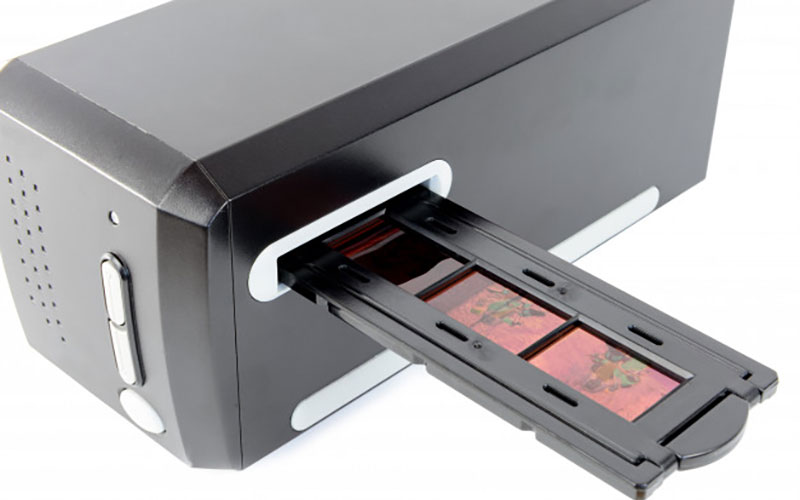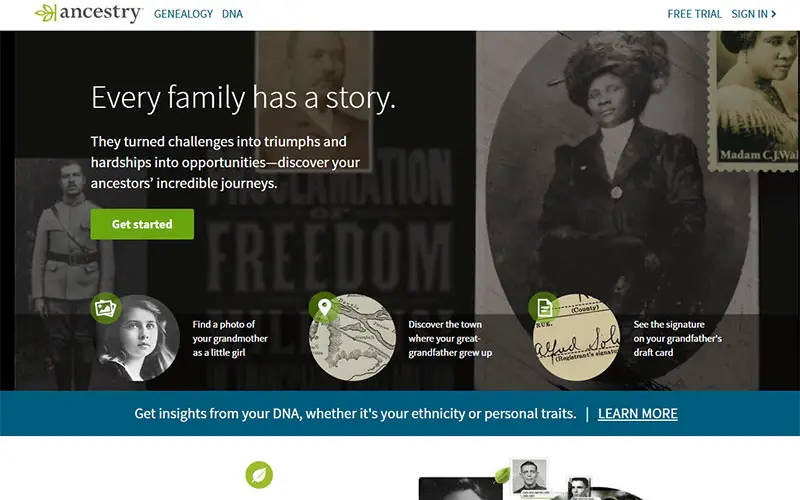If you are interested in learning about your family history and where you come from, genealogy might seem like an essential step in finding out more.
With the growth of technology, the genealogy tools and gadgets out there for learning about your family and building a family tree have been steadily increasing.
In fact, it may seem overwhelming, but some great tools can help you make the most of your search.
10 Must-Have Genealogy Tools and Gadgets
Contents
If you want to learn more about where you came from and your family’s history, read on to learn about the different tools and gadgets that are perfect for any budding genealogist.
1. Portable Scanner
When you are looking up documents or looking at hard copies of documents in your genealogy binder, it may be helpful to scan them for future perusal.
A portable scanner can help you take real-time scans of the paper record and then store them on an SD card.
Some scanners are wireless and will be perfect for this kind of project.
They allow you to research your family at any time you want and keep accurate records of your family.
It also makes it easy to share this information with others due to an SD card’s easy transference.
Related: Best Genealogy Books For Beginners
2. Film Scanner

Another type of scanner that may be helpful for your genealogy project is a film scanner.
When looking at old family photos or film, you can utilize a film scanner to create a digital copy of film reels.
This helps you still look at the photos while not worrying about the film becoming damaged or ruined. Just like a portable scanner, the film scanner can come with an SD card.
The card can then make transferring content easier and sharing information among multiple people.
3. Audio Recorder

When you talk to people about experiences or people in their families, it will benefit you to have an audio recorder.
An audio recorder can help store the audio files and allow you to play them repeatedly not to miss the details.
An audio recorder can even be small enough to place in your bag and carry it wherever you go.
You even have the option to turn the audio files into CDs or mp3 files to share or re-listen to the recording.
4. External Hard Drive

When you are doing genealogy research, you can amass a large number of files.
This can be stored on your computer but will take up a lot of memory space.
Utilizing an external hard drive will allow you to have more memory space and keep all the materials together.
An external hard drive can be plugged into your computer, and files can be transferred easily between your computer and the external drive.
This also will make sure if your computer crashes or loses your documents, you will still have them on your external hard drive.
5. Genscriber
Genscriber is digital software that can allow you to transcribe documents easily, such as census records.
This will enable you to avoid printing out copious amounts of paper and keep digital records easily accessible.
The best thing about this resource is that some materials can be challenging to read, and this software does it for you, so you do not have to puzzle out the information.
6. Digital Archives

Multiple websites contain large databases of ancestry records.
These websites, such as Ancestry.com, allow genealogists to explore family records without printing anything out or utilizing paper copies.
Of course, these things can supplement your research, but heaving digital records can help you look at things anywhere.
Also, digital archives allow people not to be looking for resources and instead have one place to look.
These services can be free or require a fee that ensures many records are always at your fingertips.
7. Transcribe Services
Another piece of technology that can be helpful for genealogists is to utilize transcribe services.
These services can consist of listening to your recording and copying it down or using your technology to record and copy what you hear immediately.
This can ensure you have a hard copy of what is being said but does not require the painstaking process of copying it down yourself.
This can be especially helpful when talking to someone about a story or family member.
8. News Archive(s)
Depending on where your family is from, it can be easy to search local news archives for your family’s information.
You can learn from obituaries, news articles, or various other written pieces about your family available in a news archive.
These archives can sometimes be shared across sites, so you may not even have to look at more than one site.
These archives can provide you information about family lines that may help trace your lineage back further.
9. Google Tools
The giant search engine and the online site can be helpful when doing genealogy research.
Besides the search engine, you can use the various applications that can help you find more information and keep track of it.
Google Docs can be great for transcribing or storing family stories.
The great thing about the Google Cloud is that it can be accessed from anywhere. Google Docs can store text documents and pictures for you quickly,
Google Slides/Google Sheets can keep track of your information and make sure it stays organized.
These items can be stored on the cloud and accessed anywhere.
Both Google Earth and Google Maps can make pinpointing locations easy.
They also have street views and pictures of items in those areas, which can be used for searching for information about your family.
Google Scholar and Books are databases that allow you to look up information quickly and easily about your family.
It may show stories of your family’s life or just dates and information.
It will also provide sites you can look at for more information in the citation section.
10. DNA Test
There are multiple different DNA tests out there.
Over the last few years, there has been an influx of DNA kits that you can take at home and send in to be analyzed.
They can tell you about family health issues, your genes, or your family ancestry.
These DNA tests can be crucial for any genealogist. It can be a starting place or help you discover different parts of your heritage you never knew you had.
Each company offers various products, but they can help you connect to people with similar DNA to you and give you new resources to explore.
DNA tests can be expensive to purchase depending on what service you use.
But they can have many other built-in features that allow you to learn more about your family. For example, Ancestry DNA has clusters of places you are from.
It will also connect you to other people that have the same DNA as you. This allows you to have a fountain of resources that is constantly changing.
Can I Find My Ancestors for Free?
The best tool for any genealogy project is to be curious. Always be looking for new ways to explore your past and be researching new technology that comes out.
There will always be new ways to explore your history or delve more into the past details.
New technologies and new groups of records are opening up constantly that can help expand your search. These resources can be free, along with news sites that can make your search easy and cheap!
Final Thoughts
These things are just some of the great tools out there for genealogists. Each device has a specific purpose and can help you better understand the world and your ancestry within it.

